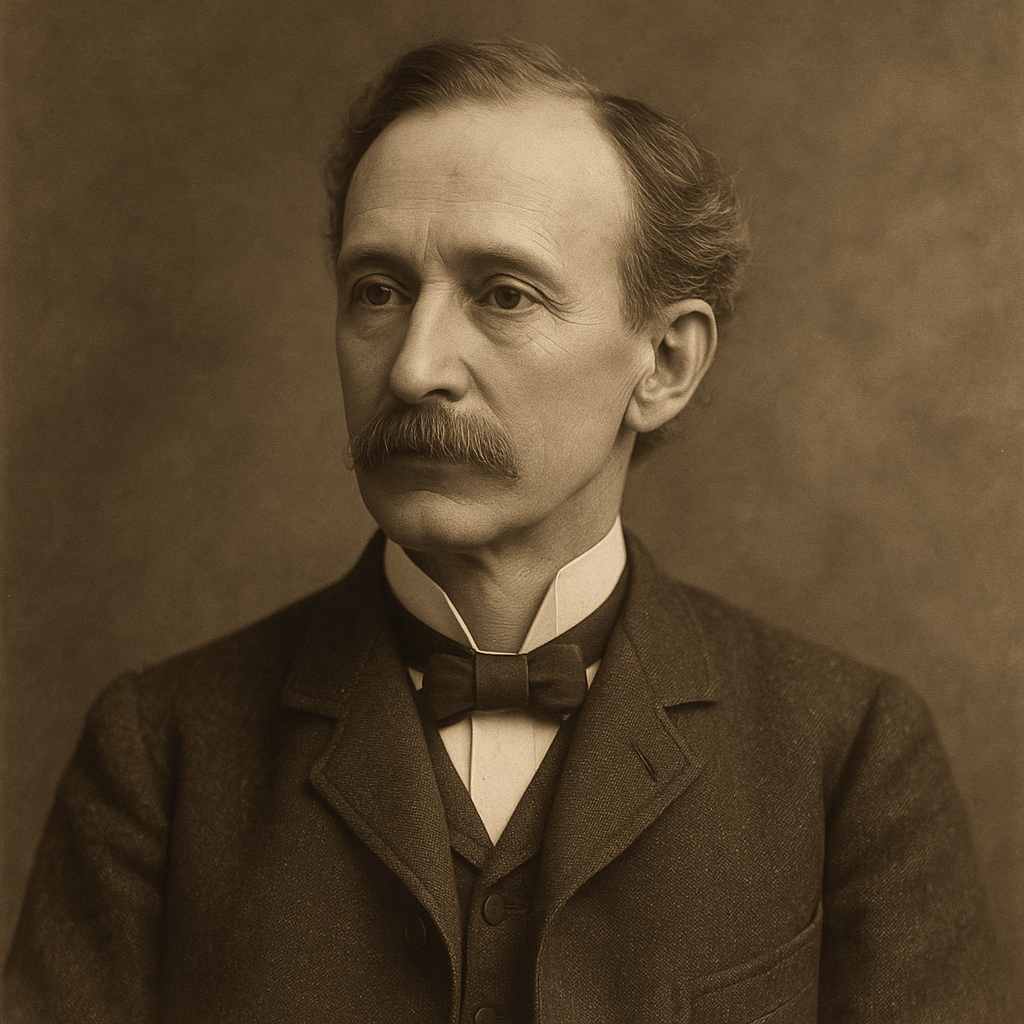To-day
Nixon Waterman
1859 to 1944

We shall do so much in the years to come,
But what have we done to-day?
We shall give out gold in princely sum,
But what did we give to-day?
We shall lift the heart and dry the tear,
We shall plant a hope in the place of fear,
We shall speak with words of love and cheer,
But what have we done to-day?
We shall be so kind in the after while,
But what have we been to-day?
We shall bring to each lonely life a smile,
But what have we brought to-day?
We shall give to truth a grander birth,
And to steadfast faith a deeper worth,
We shall feed the hungering souls of earth,
But whom have we fed to-day?
Nixon Waterman's To-day
Nixon Waterman's "To-day" serves as a poignant reminder of the urgency of living a meaningful life in the present moment. The poem's simple structure and direct language belie its profound message: that the future is but a collection of "to-days," and that postponing acts of kindness, generosity, and faith renders them meaningless. Through the repetition of "We shall" and "But what have we done to-day?", Waterman creates a powerful contrast between lofty aspirations and the often-neglected reality of present action. This analysis will explore the poem's historical context, literary devices, themes, and emotional impact, aiming to illuminate its enduring relevance for both literary scholars and casual readers alike.
Historical Context
Nixon Waterman (1859-1944) was an American poet and author who wrote extensively during the late 19th and early 20th centuries. This period, marked by rapid industrialization and social change, often led to feelings of uncertainty and a focus on future progress. Waterman's poem, however, acts as a counterpoint to this trend, urging his readers to ground themselves in the present and recognize the value of immediate action. Understanding this historical context allows us to appreciate the poem's call for mindful living as a response to the anxieties of its time.
Literary Devices
Waterman masterfully employs several literary devices to convey his message:
- Repetition: The insistent repetition of "We shall" and "But what have we done to-day?" creates a sense of urgency and emphasizes the contrast between future intentions and present actions. This anaphora drives home the poem's central theme of prioritizing the present moment.
- Rhetorical Questions: The poem is structured around a series of rhetorical questions, prompting the reader to self-reflect and confront their own inaction. These questions are not meant to be answered literally but rather to stir the conscience and inspire change.
- Juxtaposition: The poem juxtaposes grand future aspirations ("give out gold in princely sum," "lift the heart and dry the tear") with the stark reality of present inaction ("what did we give to-day?"). This juxtaposition highlights the futility of good intentions without corresponding actions.
- Imagery: Although the poem employs simple language, it effectively uses imagery to evoke concrete actions and their impact ("dry the tear," "plant a hope," "feed the hungering souls"). This imagery makes the poem relatable and emphasizes the tangible consequences of our choices.
Themes
- The Urgency of the Present: The poem's central theme is the importance of living fully in the present moment. Waterman challenges the tendency to postpone good deeds, arguing that the present is the only time we truly have to make a difference.
- Action over Intention: "To-day" emphasizes that good intentions are meaningless without corresponding actions. The poem urges us to translate our aspirations into concrete deeds, highlighting the disconnect between thought and action.
- The Power of Small Acts: While the poem mentions grand gestures ("give out gold"), it also implicitly acknowledges the power of small, everyday acts of kindness and compassion ("lift the heart," "dry the tear"). It suggests that even seemingly insignificant actions can have a profound impact on others.
- Spiritual and Moral Responsibility: The poem touches on themes of spiritual and moral responsibility, urging us to "feed the hungering souls of earth" and give "to truth a grander birth." This highlights the importance of living a life guided by ethical principles and a commitment to the well-being of others.
Emotional Impact
"To-day" is a deeply affecting poem that evokes a range of emotions. The initial response might be one of guilt or shame as the reader confronts their own procrastination and unfulfilled intentions. However, the poem also offers a message of hope and empowerment. It reminds us that we have the power to change our ways and make a positive impact on the world, starting today. The poem's emotional resonance lies in its ability to connect with our deepest desires to live a meaningful and purposeful life.
Conclusion
Nixon Waterman's "To-day" is a timeless piece of literature that continues to resonate with readers across generations. Its simple yet profound message about the urgency of the present moment and the importance of action over intention remains as relevant today as it was when it was written. Through its skillful use of literary devices and its exploration of universal themes, the poem serves as a powerful call to action, urging us to seize the day and make the most of the present moment. By reminding us that the future is built on the foundation of our actions today, "To-day" encourages us to live with purpose, compassion, and a commitment to making a positive difference in the world.
This text was generated by AI and is for reference only. Learn more
Want to join the discussion? Reopen or create a unique username to comment. No personal details required!



Comments
No comments yet. Be the first to comment!